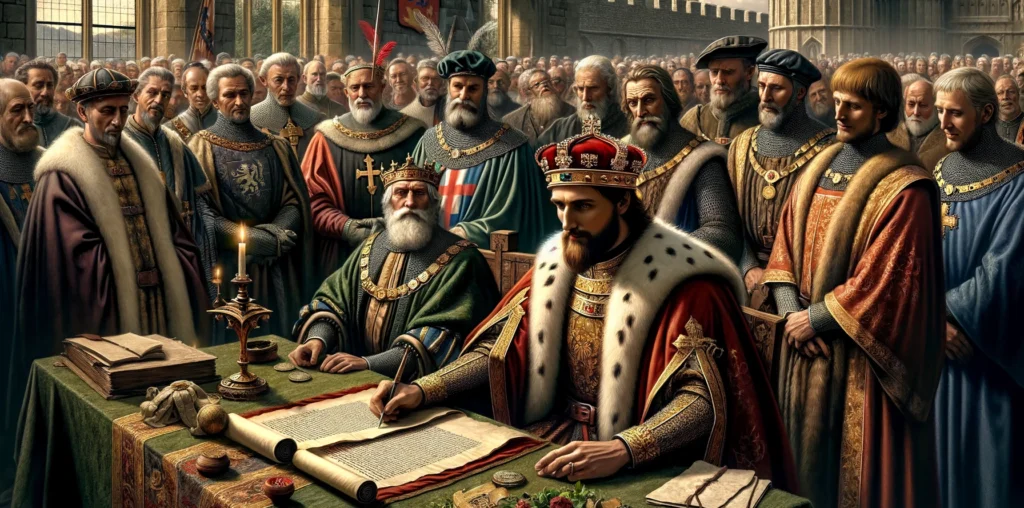On June 15, 1215, a momentous event took place at Runnymede, near Windsor, when King John of England signed the Magna Carta, or the “Great Charter.” This document was a response to the barons’ rebellion against the king’s oppressive rule and heavy taxation. The Magna Carta is often hailed as the foundation of modern democracy, establishing the principle that everyone, including the king, is subject to the law.
The Magna Carta introduced several important legal concepts, such as the right to a fair trial, protection from arbitrary imprisonment, and the limitation of feudal payments to the Crown. Although many of its clauses were specific to the feudal system of the time, the Magna Carta’s legacy endures, influencing constitutional law and the development of human rights.
The immediate impact of the Magna Carta was limited, as King John sought to annul the document shortly after its signing. However, the principles it established were revived and reinforced by subsequent monarchs and legal developments. Over the centuries, the Magna Carta became a symbol of liberty and justice, inspiring movements for constitutional government around the world.
The Magna Carta’s influence extends beyond England, shaping the development of legal systems in many countries, including the United States. The principles enshrined in the Magna Carta, such as due process and the rule of law, continue to underpin modern democratic societies.

